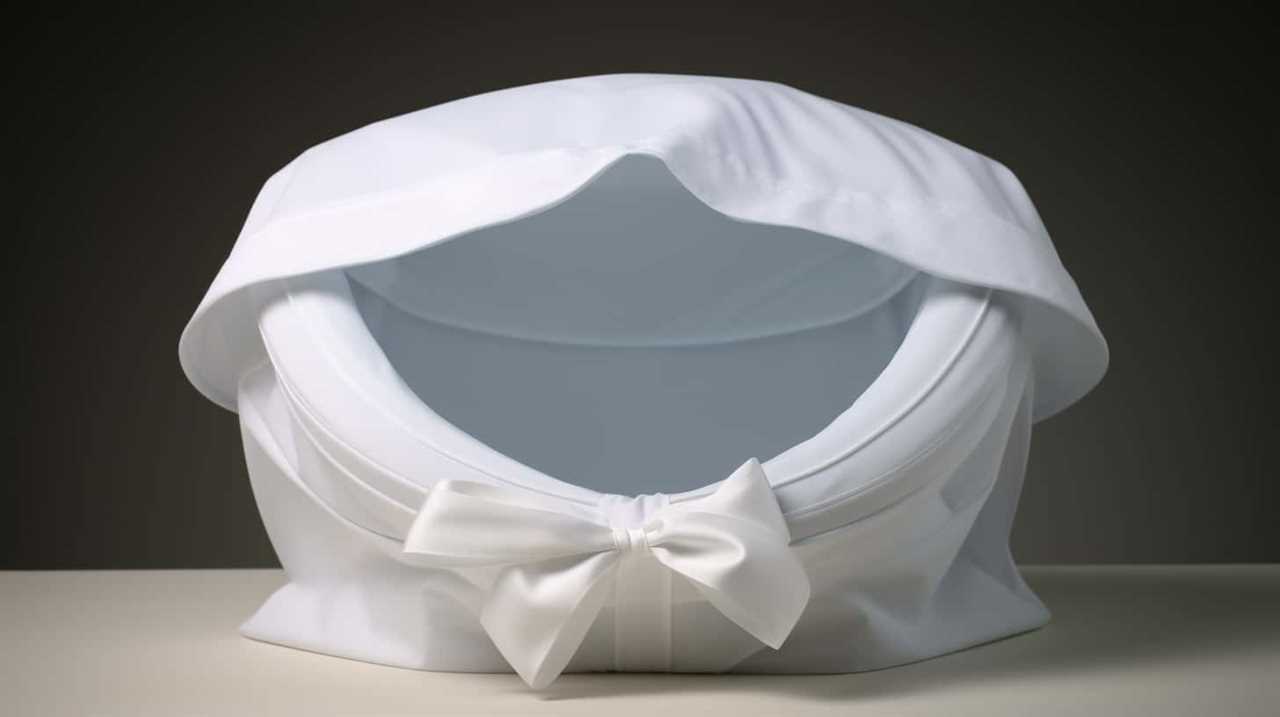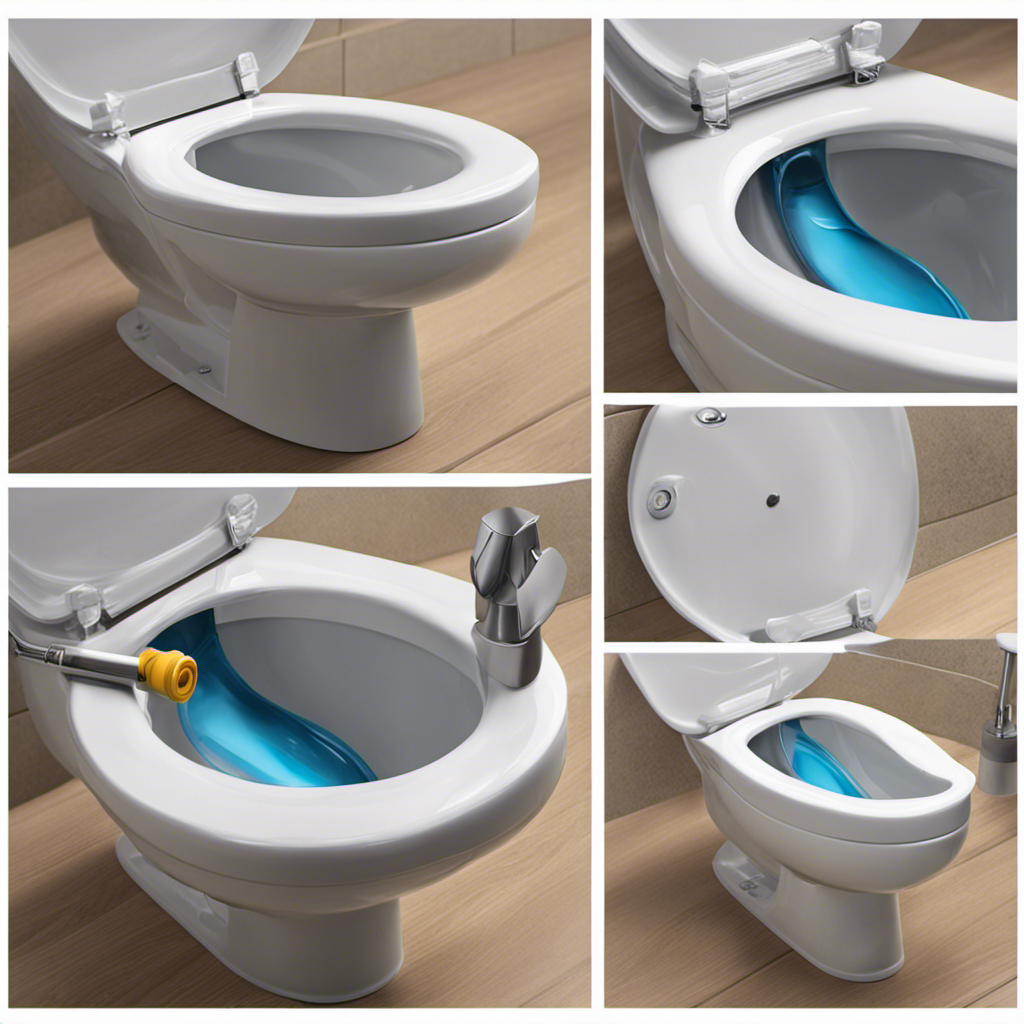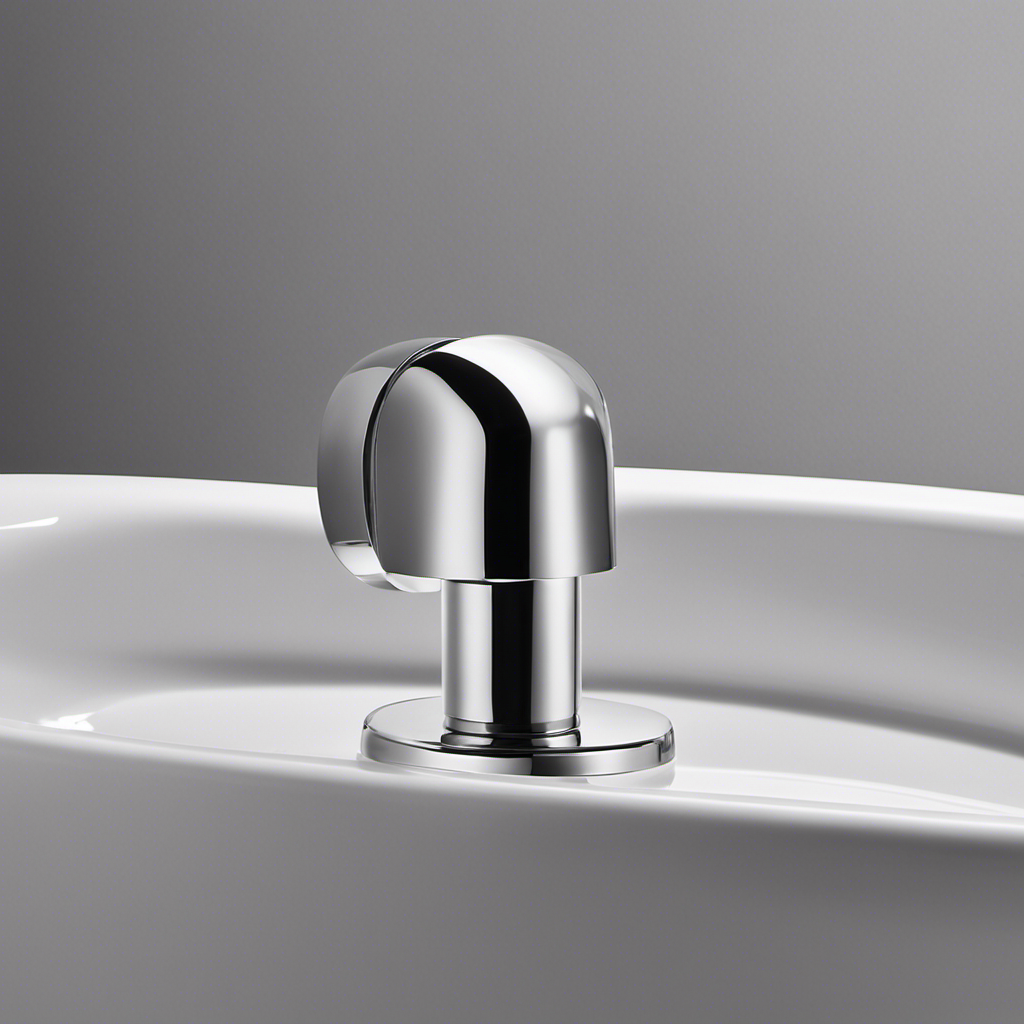Ladies and gentlemen, we’re all familiar with the assurances given by flushable wipes, yet the question remains: do they really deliver on their promises?
In this article, we dive deep into the flushability myth, exploring the harmful effects of non-flushable wipes and evaluating the so-called ‘flushable’ options on the market.
Armed with evidence-based research, we’ll uncover the truth behind these products and provide you with alternatives and proper disposal tips.
Get ready to master the art of safe wipe flushing!
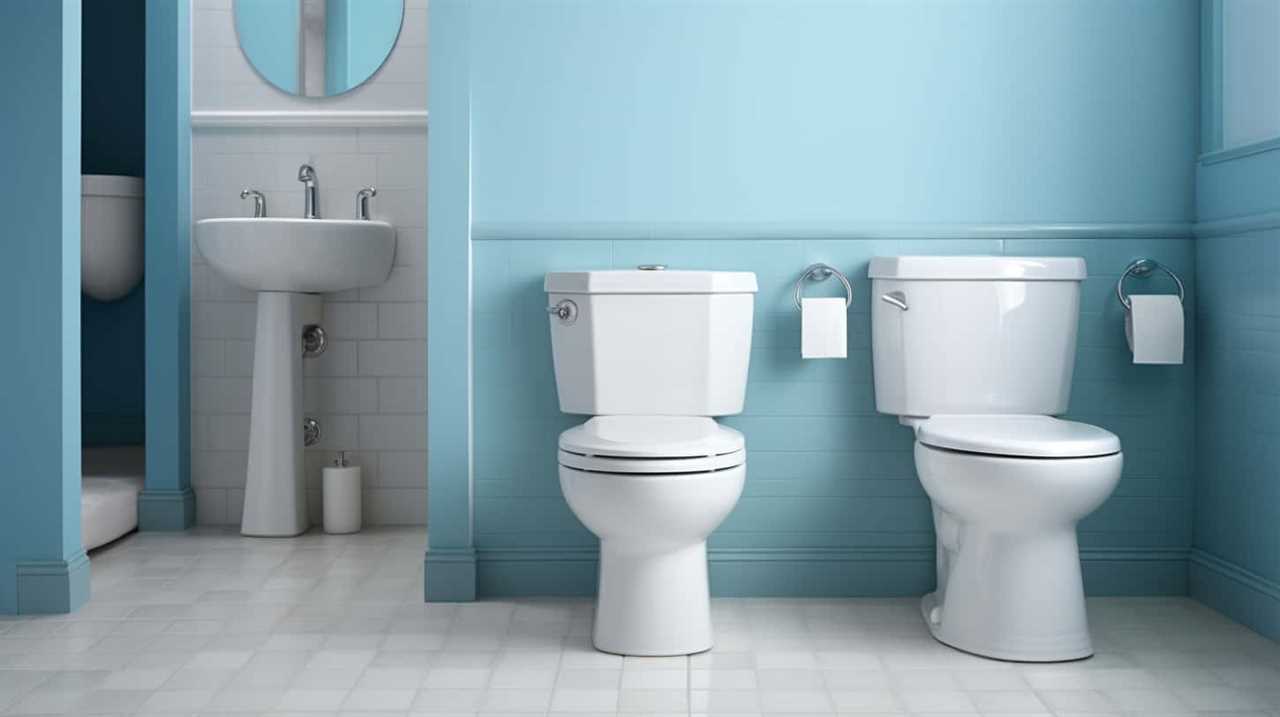
Key Takeaways
- Flushable wipes labeled as ‘flushable’ are not safe to be flushed down the toilet as they do not break down easily like toilet paper, leading to blockages and backups.
- Flushing wipes, whether labeled as ‘flushable’ or not, can cause clogs in pipes and sewer systems, resulting in costly repairs and equipment failure.
- Non-flushable wipes can end up in waterways, leading to pollution and harm to marine life. Proper disposal of non-flushable wipes in the trash is crucial to avoid harmful effects.
- Consumer awareness is important in understanding the environmental impact of flushable wipes and considering alternatives that are safe to flush and have minimal impact on plumbing systems and the environment.
Understanding the Flushability Myth
We debunk the flushability myth surrounding wipes by examining their true impact on plumbing systems. Many people mistakenly believe that wipes labeled as ‘flushable’ are safe to be flushed down the toilet without causing any issues. However, this is far from the truth.
Toilet clogs are a common occurrence when flushable wipes are introduced into the plumbing system. These wipes don’t break down easily like toilet paper, leading to blockages and backups. Not only do these clogs disrupt the normal functioning of the plumbing system, but they also require costly repairs.
Additionally, the environmental impact of flushable wipes is significant. These wipes don’t biodegrade quickly, contributing to the growing problem of pollution in our waterways.
It’s crucial to understand the truth behind the flushability myth and make responsible choices to protect our plumbing systems and the environment.
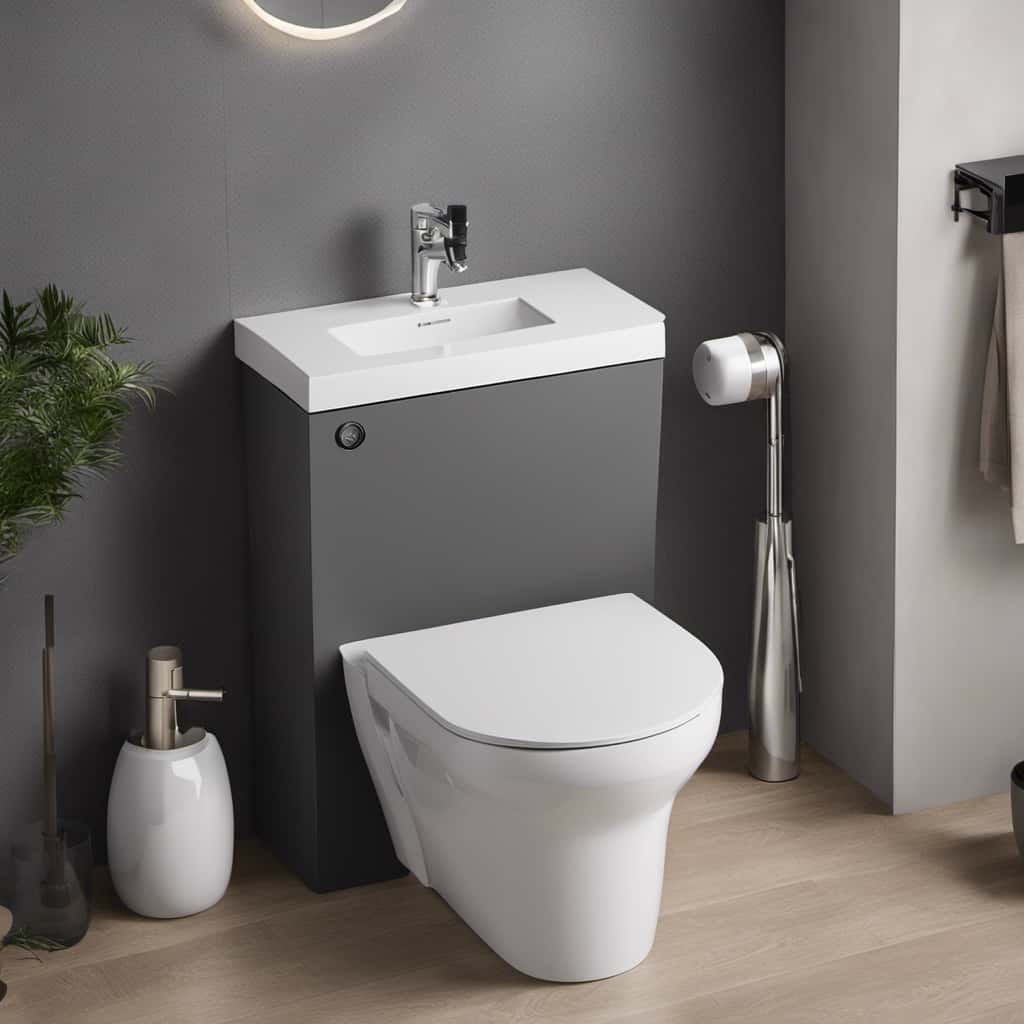
Harmful Effects of Non-Flushable Wipes
Non-flushable wipes can have detrimental effects on plumbing systems and the environment, as we frequently encounter blockages and pollution when they’re improperly disposed of.
Here are three reasons why non-flushable wipes can be harmful:
- Environmental impact: When non-flushable wipes are flushed down the toilet, they can end up in our waterways. These wipes don’t break down easily like toilet paper, leading to the pollution of rivers, lakes, and oceans. The presence of these wipes can harm marine life and disrupt ecosystems.
- Wastewater treatment: Non-flushable wipes can cause clogs in the sewer system, leading to costly repairs and maintenance. These wipes can get caught in pumps and screens at wastewater treatment plants, causing inefficiencies and increasing the risk of equipment failure. This can result in untreated wastewater being released into the environment.
- Increased costs: Dealing with the consequences of non-flushable wipes, such as blockages and equipment damage, can be expensive for municipalities and homeowners. The costs associated with repairs, maintenance, and environmental cleanup ultimately fall on taxpayers and consumers.
It is crucial to properly dispose of non-flushable wipes in the trash to avoid these harmful effects on our plumbing systems and the environment.
Evaluating "Flushable" Wipes on the Market
As we evaluate the ‘flushable’ wipes available on the market, it’s important to consider their actual flushability and potential impact on plumbing systems and the environment. Despite being labeled as ‘flushable’, these wipes often don’t break down as easily as toilet paper, leading to clogs and blockages in sewage systems. Studies have shown that even wipes labeled as ‘flushable’ can contribute to costly plumbing repairs and environmental damage.
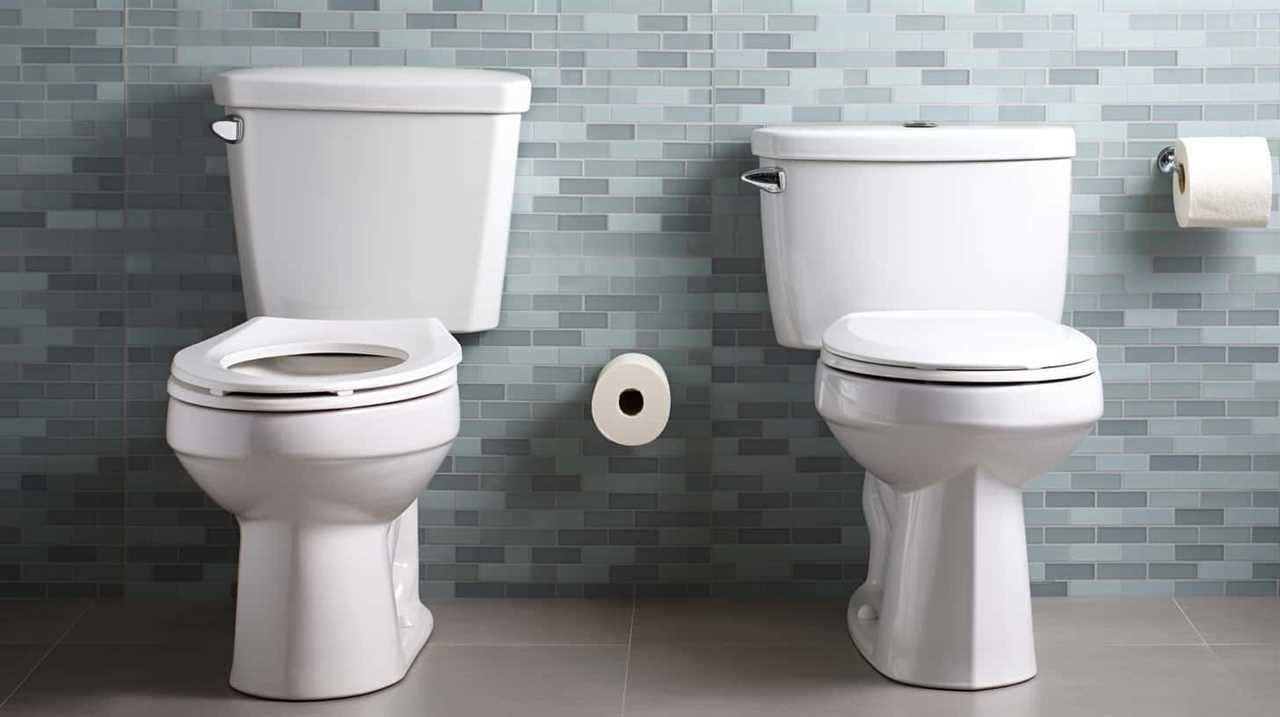
The truth is, no wipe is truly flushable in the same way that toilet paper is. Consumer awareness is crucial in understanding the environmental impact of these wipes and making informed choices. It’s important to be vigilant and look for alternatives to flushable wipes that are truly safe to flush and have minimal impact on our plumbing systems and the environment.
Alternatives to Flushable Wipes
Let’s explore some other options besides flushable wipes. While they may seem convenient, the environmental impact and cost comparison of using flushable wipes is worth considering.
Here are three alternatives that are more sustainable and cost-effective:
- Reusable Cloth Wipes: Investing in reusable cloth wipes not only reduces waste but also saves money in the long run. They can be easily washed and reused, making them a more eco-friendly choice.
- Toilet Paper: Good old-fashioned toilet paper is a tried and true option. It’s specifically designed to break down in water and is less likely to cause blockages in the plumbing system.
- Bidets: Bidets provide a hygienic cleansing option while minimizing the use of wipes altogether. They’re more common in European countries but are gaining popularity globally due to their environmental benefits.
Considering these alternatives, it’s clear that there are more sustainable and cost-effective options available than flushable wipes.

Now, let’s move on to the next section to learn about proper disposal of wipes.
Tips for Proper Disposal of Wipes
To ensure proper disposal of wipes, it’s important to consistently and responsibly dispose of them in the designated trash bin. Improper disposal of wipes can have a significant environmental impact. Many wipes are made of synthetic materials that don’t break down easily, leading to clogged sewage systems and increased waste in landfills.
When wipes are flushed down the toilet, they can contribute to the formation of fatbergs, which are large masses of solid waste that can block sewer lines. Additionally, wipes that end up in landfills take a long time to decompose, further adding to environmental pollution.
To minimize the environmental impact of wipes, it’s crucial to follow proper disposal methods. This includes disposing of them in the trash bin and avoiding flushing them down the toilet.
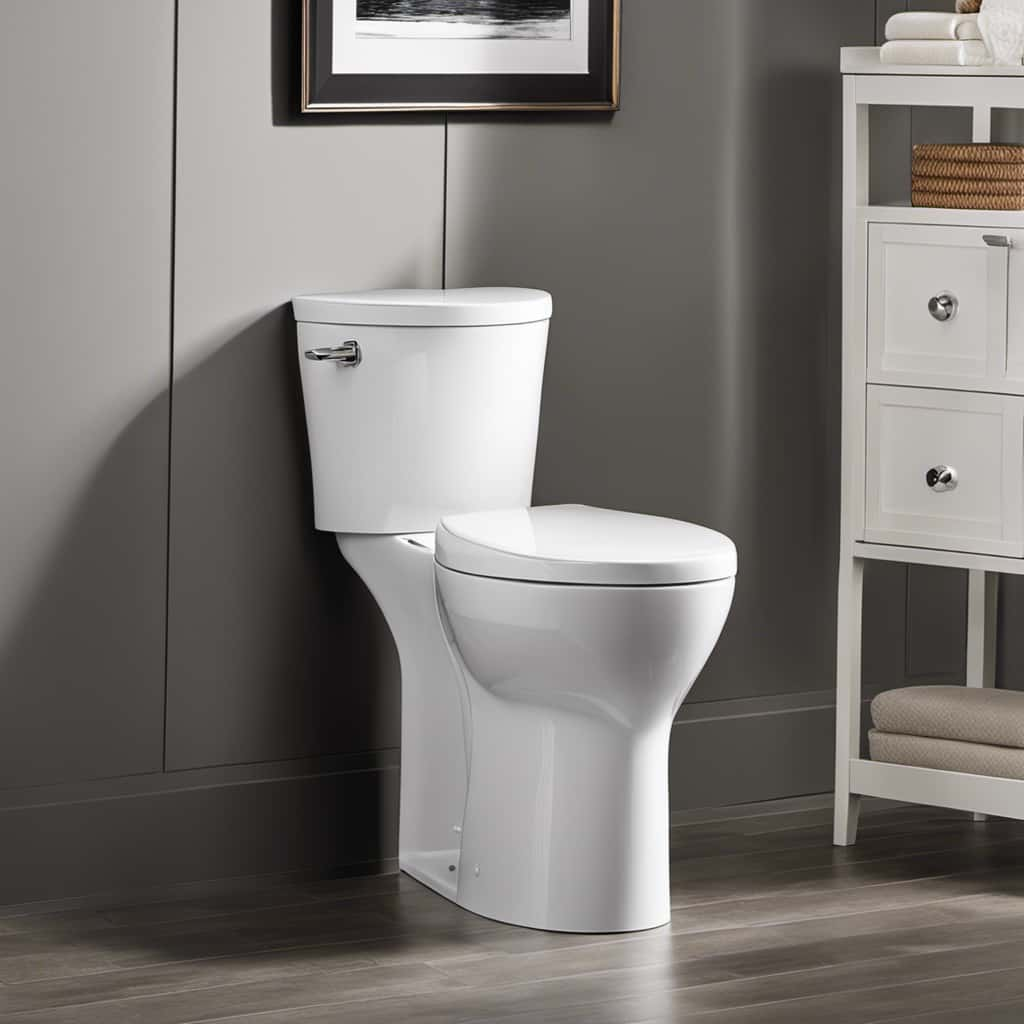
Frequently Asked Questions
Are Flushable Wipes Really Safe to Flush Down the Toilet?
Yes, flushable wipes may not be safe to flush as they can clog pipes and contribute to environmental issues. There are alternatives like biodegradable wipes or using toilet paper and water for personal hygiene.
How Long Does It Take for Flushable Wipes to Break Down in the Sewage System?
In the sewage system, flushable wipes can take an excruciatingly long time to break down. This can have a detrimental environmental impact, as they contribute to clogs and blockages.
Are There Any Specific Brands of Flushable Wipes That Are Recommended by Experts?
Expert recommended flushable wipe brands include Cottonelle, Charmin, and Scott. However, it is important to note that even these brands may not break down completely in the sewage system. Alternatives to flushable wipes for toilet use include using toilet paper or a bidet.
Can Using Flushable Wipes Cause Clogs in the Plumbing System?
Using flushable wipes can indeed cause clogs in the plumbing system. However, there are potential alternatives for personal hygiene, such as bidets or wet toilet paper. Non-flushable wipes can have a detrimental impact on plumbing systems.
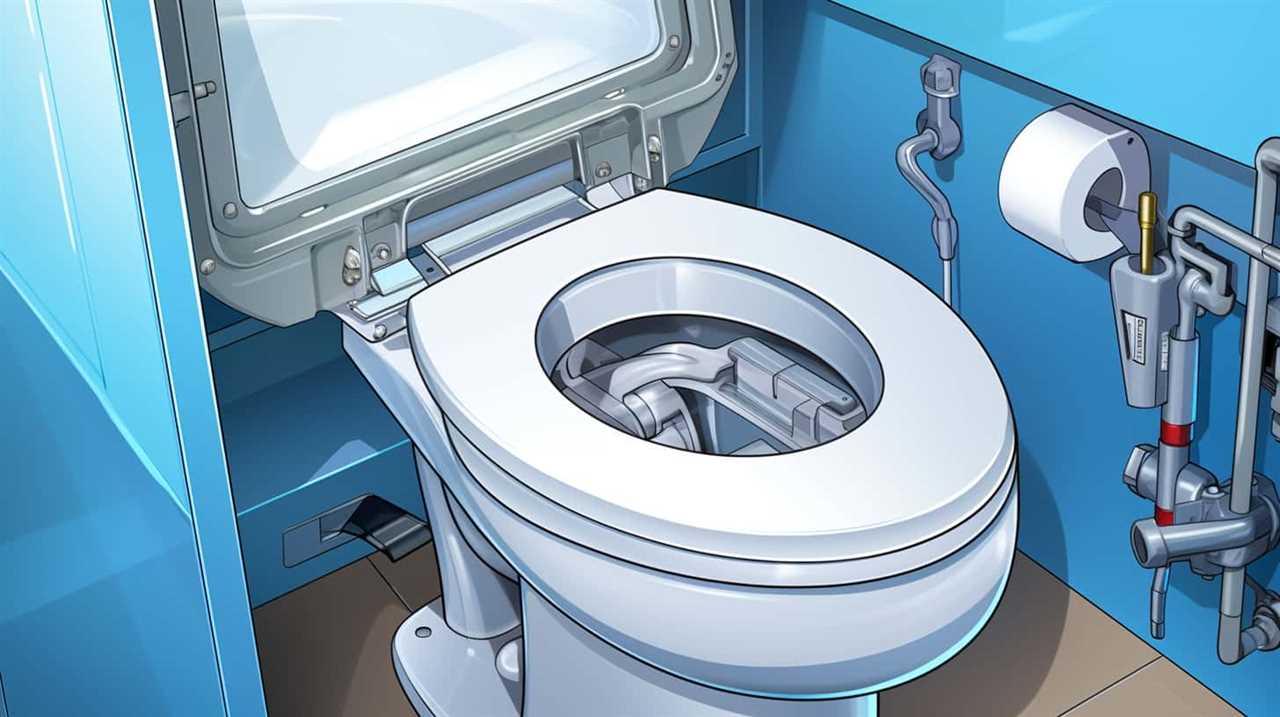
Do Flushable Wipes Have Any Negative Impact on the Environment?
Flushable wipes, when compared to regular toilet paper, can have a negative impact on the environment. Studies have shown that they contribute to clogs in sewage systems and can harm marine life when they enter waterways.
Conclusion
In conclusion, it’s important to debunk the myth of flushable wipes as they can cause significant harm to our plumbing systems and the environment. Despite claims of being flushable, these wipes don’t break down like toilet paper and can clog pipes and sewer systems.
It’s crucial to opt for alternatives such as biodegradable wipes or simply using toilet paper. So, next time you reach for a flushable wipe, ask yourself, is it really worth the risk?
